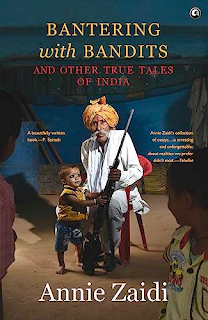Terrible news. Desraj Kali is gone. Other people have written detailed obits, and friends like Shekhar have written personal accounts that show the sort of man he was, the instant acceptance, warmth and affection he offered even to strangers. I feel a bit numb and don't know where to begin.
I have written about Kali (he referred to himself as Kali, and so I did too) in Bantering with Bandits and Other True Tales. He was one of the doorways through which I encountered Punjab outside of the loud, Bollywood stereotype. And yet, paradoxically, he also inhabited and enlivened that stereotype. He was warm and generous and welcoming. When I first met him, it was through Ajay Bharadwaj whose film Kitte Mil Ve Mahi I had watched. I wanted to do a deeper dive into Sufism and the dera culture in Punjab and Ajay said there was no better guide than Kali. His family had attached itself to a dera but who himself was a writer and journalist and therefore understood the political and caste context in which faith is enacted.
Kali introduced me to other professors and writers and traveled with me to many deras. He also insisted that I come home and introduced me to his own family, referring to his wife as 'your Bhabhi'. We met again, in Chandigarh a few times, while I was curating the Chandigarh Literature Festival. His Punjabi novel Shanti Parav had not yet been translated into English and I pestered him to get it published in the Hindi script at least, so I could read it. Eventually it was translated and published in English and he called me to say, "There! Now you've no excuse not to read it!"
In recent years, he set up his own YouTube channel, BarqtanWebTv, where he discussed politics and culture in Punjabi. He also made appearances at various festivals and at online talks such as this one about the history of Jalandhar, where his personality and warmth are evident.
I know one is supposed to say things like 'Go Well' and 'Rest in Peace' but I feel like saying, 'Don't go yet, Kali' even though he's already gone. Whenever he called, he asked me to come visit again, to eat the food 'your bhabhi' would cook. I always said that the taste of her cooking was still fresh on my tongue. He was unabashed in his expression of affection and sometimes when he called, he would admit that he was drunk and that he was ringing up all the people he loved. I kept saying I would visit next year, but there was always work and deadlines and new projects. I can't say how much I will miss someone like Desraj Kali. There are few people like him and the loss of his voice and his large heart will be felt by many.
